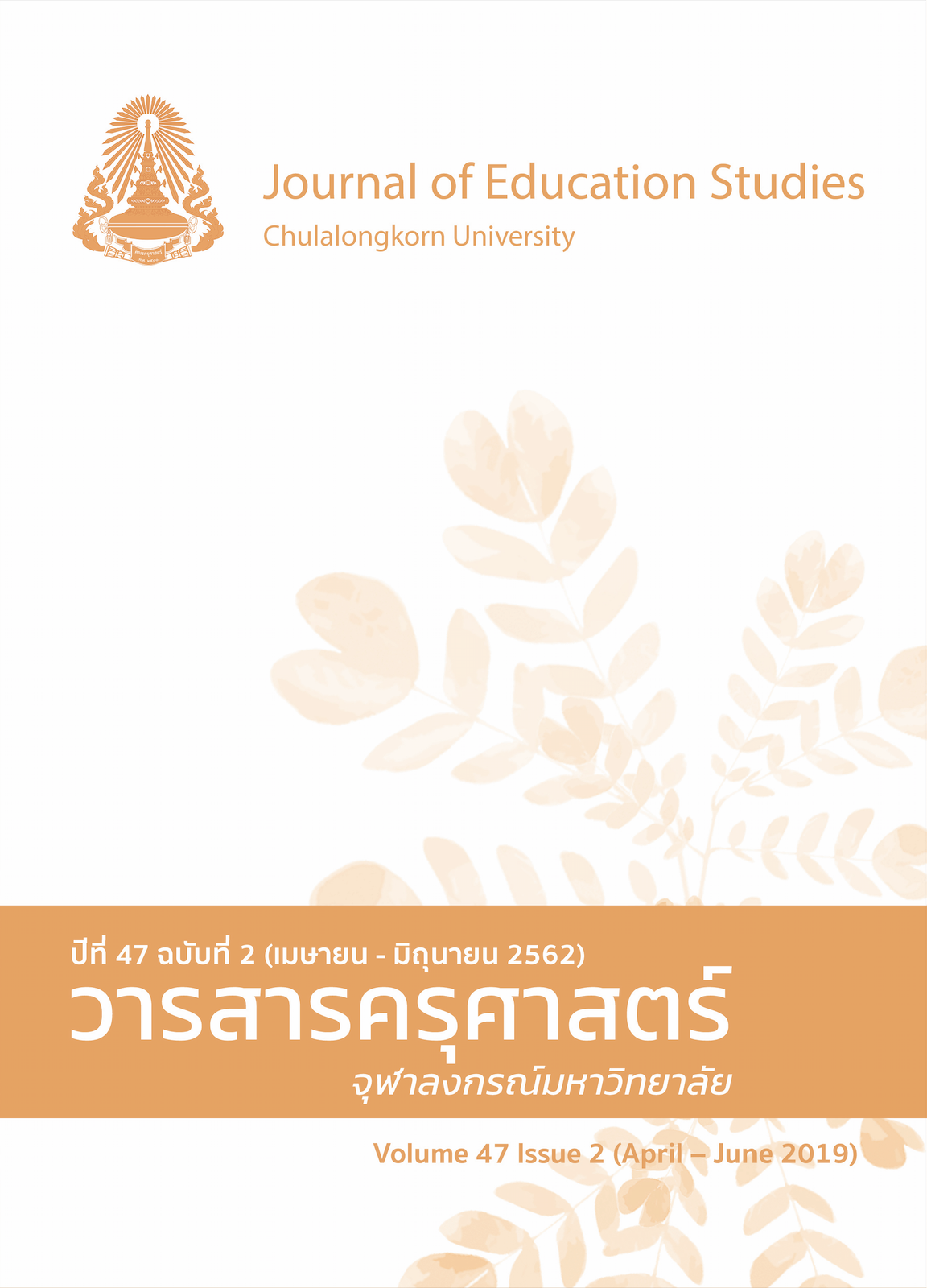ผลของการใช้ปัญหาปลายเปิดในการเรียนการสอนโครงงานวิทยาศาสตร์ที่มีต่อ ความสามารถในการคิดอย่างมีเหตุผลและความสามารถในการคิดสร้างสรรค์ของนักเรียน มัธยมศึกษาตอนต้น โรงเรียนสาธิตในสังกัดมหาวิทยาลัยในกำกับของรัฐ
Keywords:
OPEN-ENDED PROBLEMS, SCIENCE PROJECT INSTRUCTION, RATIONAL THINKING ABILITIES, CREATIVE THINKING ABILITIESAbstract
The purposes of this research were to (1) compare the rational thinking and creative thinking abilities of students before and after learning through open-ended problems, (2) compare the rational thinking and creative thinking abilities of students between the groups which learned through the open-ended problems and the groups which learned through the conventional teaching methods, and (3) compare the rational thinking and creative thinking abilities of students which learned through the open-ended problems with different learning achievement levels (high, medium, and low levels). The samples consisted of 68 eighth grade students of Chulalongkorn University Demonstration Secondary School, during the Academic Year 2014. They were assigned to an experimental group and a control group. The research instruments were a rational thinking abilities test and a creative thinking abilities test. The collected data were then analyzed by using arithmetic means, t-test and the One-Way Analysis of Variance.
The research findings were summarized as follows: (1) After the experiment, the mean score of rational thinking abilities of students who learned through the open-ended problems did not differ from the initial score. (2) The students who learned through the open-ended problems did not have a different rational thinking abilities mean score from those who learned with the conventional teaching method. (3) The students with different levels of learning achievements within the open-ended problems group had a post-test mean score significance difference at the .05 level of rational thinking and creative thinking abilities.




